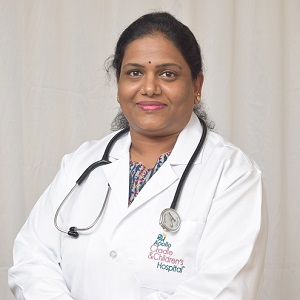Pregnancy is a wonderful phase in a woman's life. However, your body goes through a lot of changes during these 9 months. While complications depend on different factors, it is important to monitor the mother and the baby regularly to rule out any issues. Fetal medicine is a specialised breach of medicine that helps in such cases.
What is Fetal Medicine?
Fetal medicine is also known as perinatology and is a branch of obstetrics and gynaecology. It focuses on dealing with the health concerns of the mother and child before, during, and shortly after pregnancy. Experts in this field work with the mother and family to achieve the best possible outcome. These specialists have advanced working knowledge about complications that occur during pregnancy, whether surgical, genetic, or medical.
Who qualifies for Fetal Medicine?
Women at various stages of their pregnancies might need aid from fetal medicine experts. They provide aid in the following conditions:
- Recurrent pregnancy loss: Pregnant women who have experienced multiple miscarriages in the past may have an undetected health problem, making it hard to carry the pregnancy to term. Fetal medicine experts assess the underlying health problems and help carry the next pregnancy to term.
- Preterm birth: This includes early contractions and a shortened cervix, where Fetal medicine experts give the right treatment to avoid early labour.
- Blood Pressure problems: In high-risk pregnancies, complications such as HELLP syndrome, preeclampsia, gestational hypertension, etc., can occur. These situations can lead to preterm deliveries. Fetal medicine specialists help analyse the best course of action. In cases of women who had blood pressure problems in earlier pregnancies, the specialists can help devise a strategy to minimise the risks associated with the new pregnancy.
- Bleeding: Complications relating to the placenta arise during pregnancy if the placenta is above the cervix or if it becomes detached. In such cases, bleeding occurs. Some of the most common symptoms associated with bleeding are placenta previa, placenta accrete, partial placental abruption, and complete abruption. In such cases, the Fetal medicine specialists spearhead the pregnancy and help deal with the issues.
- Maternal health problems: Some pre-existing health conditions that can complicate a pregnancy are congenital heart diseases, Cardiomyopathy, Restrictive lung disease, cystic fibrosis, Parathyroid disease, Sickle cell disease, multiple sclerosis, HIV, etc. Fetal medicine specialists monitor high-risk pregnancies and offer expert guidance.
- Birth Defects: Fetal Medicine specialists also provide consultation to women whose foetuses have been detected with birth defects. These experts often work with surgeons in pediatrics to navigate the best course of action for the mother and child.
- Fetal Complications: Lastly, some complications that the Fetal medicine specialists work on are multiple gestations, growth problems, infections, Allomunization, etc.
When should a woman visit a Fetal medicine specialist?
If a pregnant woman suffers from a pre-existing condition while trying to conceive or during pregnancy, it is advisable to visit these specialists. More often than not, regular OBGYNs will refer women to Fetal medicine specialists if they detect complications in pregnancy.
What are the benefits of Fetal medicine?
Fetal medicine can help the expecting parents in the following ways-
- It detects abnormalities in the foetus and helps resolve them, mostly in the womb.
- It helps detect and treat maternal health conditions at the right time to avoid complications in pregnancy
- It can reduce the chances of pre-term labour
- Fetal Medicine experts help advise parents in case of birth defects in the foetus
- Proper monitoring of Fetal growth and development can be done through Fetal medicine
- It is a great way to monitor multiple pregnancies where the chances of complications are high.
Conclusion
Today's advanced technology in the field of Fetal medicine is a saviour for couples with high-risk pregnancies. If you have pre-existing conditions that make pregnancy difficult for you, consulting a Fetal medicine expert can help early detection of problems and help you have a full-term pregnancy with a healthy baby.
Request an appointment at Apollo Cradle, Bengaluru - Jayanagar. Call 1860-500-4424 to book an appointment.
As the pregnancy occurs at an advanced maternal age, i.e., above 35, it is considered a high-risk pregnancy. In such situations, it is advisable to consult a foetal medicine expert.
Although some bleeding is not uncommon during pregnancy, it is advisable to consult an OBGYN\ fetal medicine specialist as it can be a sign of some complications.
While an OBGYN deals with regular-routine pregnancies, a foetal medicine specialist deals with high-risk pregnancies. A foetal medicine specialist is consulted if there are complications in the pregnancy.
Anything above a single gestation is considered a high-risk pregnancy. Thus, it is advisable to consult a foetal medicine specialist in the case of quadruplets.
Our Doctors
Treatments
- Blood Tests
- Down's Syndrome Screening
- Early Anomaly Scan
- Fetal Anomaly Scan
- Fetal Echocardiography Scan
- Fetal Ultrasound
- Fetal Well-Being Scans With Fetal Doppler
- Nuchal Translucency (NT Scan)
- Pre-eclampsia Screening
- Pre-Natal Screening & Test
- Screening Test For Maternal Infections
- Surveillance And Monitoring Of Twin Pregnancies
- Tests For Thalassemia And Sickle Cell Disease
- Viability Scan

 90% Patient Satisfaction Score
90% Patient Satisfaction Score
.webp)


